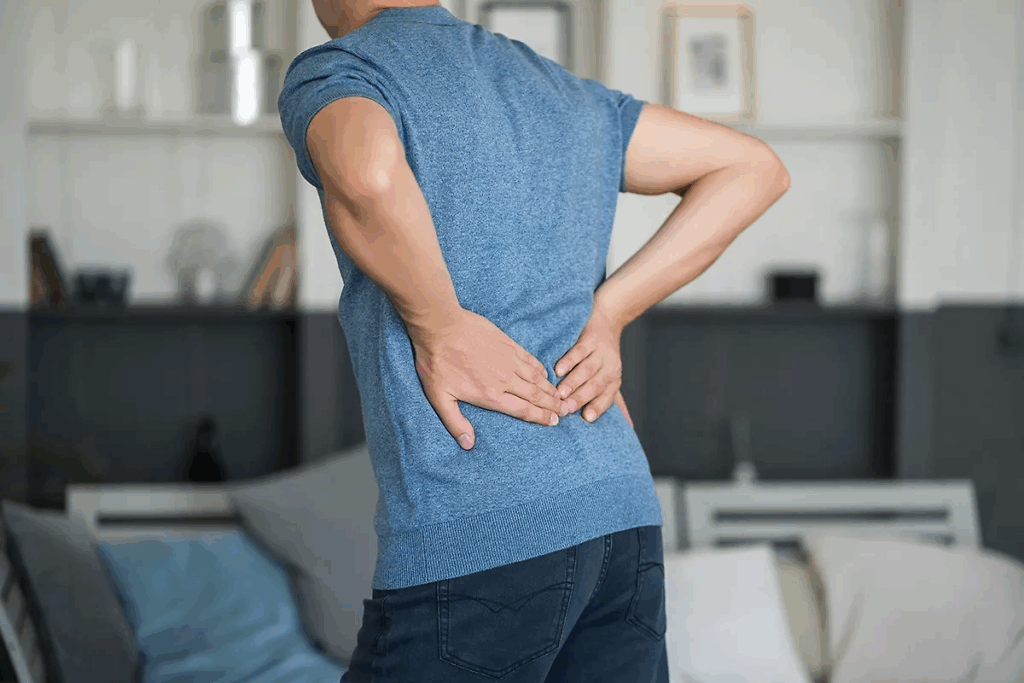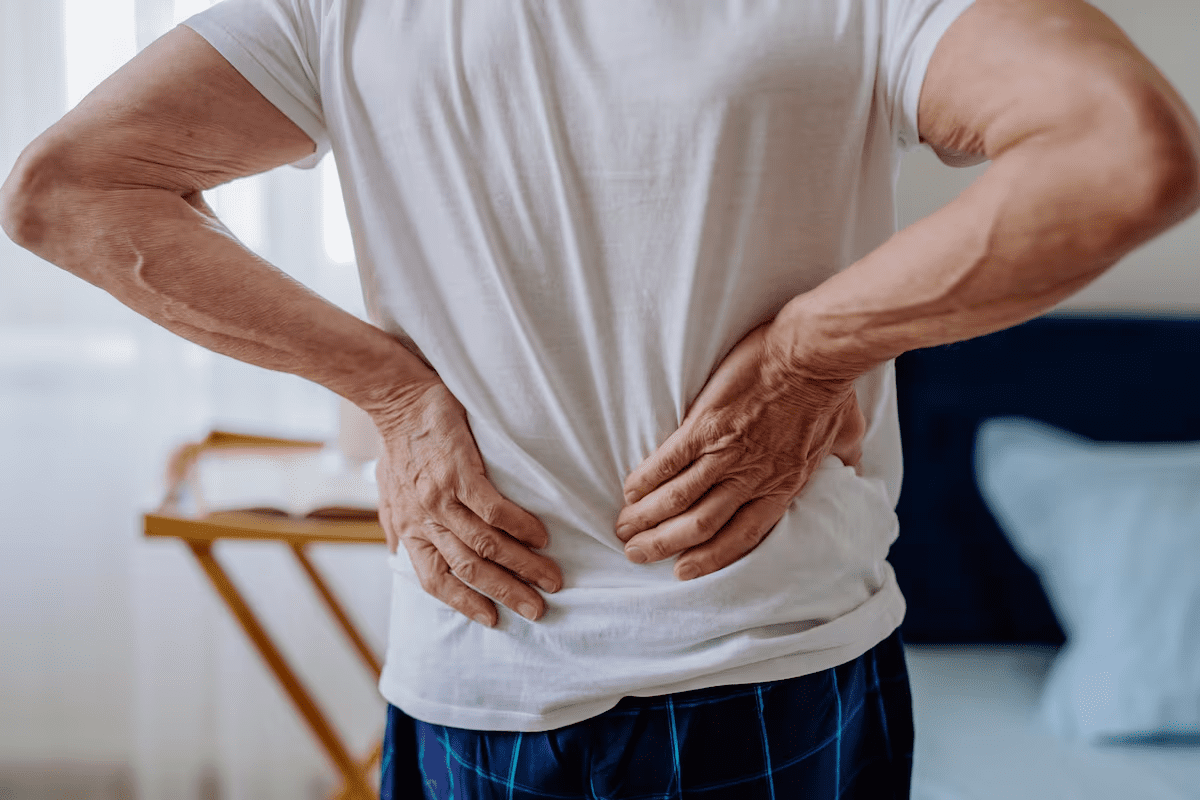
Uric acid kidney stones are a big problem worldwide, causing a lot of pain. At Liv Hospital, we know how important it is to prevent and treat this condition well. Almost two-thirds of these stones can be dissolved without surgery, helping those who suffer.
If you have uric acid stones or are at risk because of gout, diabetes, or obesity, learning how to prevent them is key. Our team at Liv Hospital is here to help. We offer personalized care to make sure you get the best health results.
A guide to uric stones treatment and relief, focusing on making the urine less acidic to dissolve the stones.
Key Takeaways
- Uric acid kidney stones can be effectively managed with the right treatment approach.
- Increasing urinary pH and volume can help dissolve nearly two-thirds of these stones.
- Proper prevention strategies can significantly reduce the risk of uric acid stone formation.
- Conditions like gout, diabetes, and obesity increase the risk of developing uric acid stones.
- A complete care plan can help manage uric acid kidney stones and prevent them from coming back.
Understanding Uric Acid Kidney Stones

It’s important to know about uric acid kidney stones to prevent and treat them well. These stones form when there’s too much uric acid in the urine. This leads to the formation of stones.
What Are Uric Acid Kidney Stones?
Uric acid kidney stones are hard deposits made of uric acid, a waste product in urine. They form when urine is acidic and concentrated. These stones can cause severe pain and other complications if not properly managed.
Prevalence and Statistics
Uric acid stones are the second most common type of kidney stone. They are more common than calcium oxalate stones. The exact prevalence can vary depending on the population studied and the diagnostic criteria used.
Population | Prevalence of Uric Acid Stones |
General Population | 5-10% |
Obese Individuals | 15-20% |
Patients with Metabolic Syndrome | 20-25% |
How They Differ from Other Kidney Stones
Uric acid stones are different from other kidney stones in their composition and formation. Unlike calcium oxalate stones, uric acid stones are linked to acidic urine pH and conditions like gout. Understanding these differences is key to targeted treatment and prevention.
Managing uric acid stones involves treating the stones and addressing the underlying causes. This includes dietary factors, urinary pH, and associated medical conditions.
Risk Factors for Developing Uric Acid Stones

Uric acid stones form due to several factors. These include the urine’s pH, medical conditions, diet, and age. Knowing these risks helps in preventing and treating stones.
Persistently Acidic Urine (pH Below 5.5)
Persistently acidic urine is a major risk factor. Uric acid stones are more likely to form in acidic urine. It’s important to check the urine’s pH regularly.
Medical Conditions
Some medical conditions raise the risk of uric acid stones. These include obesity, diabetes, and issues with the urinary tract. Managing these conditions can lower the risk of stone formation.
For example, obesity can lead to insulin resistance, causing acidic urine. Diabetes also affects urine pH and concentration, raising the risk.
Dietary Factors
Diet is key in developing uric acid stones. Eating a lot of purines (found in organ meats, seafood, and some beans) increases uric acid. A diet lacking fruits and vegetables also makes urine more acidic.
We suggest eating a balanced diet. Include fruits, vegetables, and whole grains to keep urine pH healthy and lower stone risk.
Age-Related Risks
The risk of uric acid stones grows with age. Older adults face more conditions that lead to stones, like reduced mobility and certain medications.
As we get older, it’s vital to be proactive. Stay hydrated, monitor urine pH, and manage health conditions to prevent stones.
Recognizing Symptoms of Uric Acid Kidney Stones
It’s important to know the signs of uric acid kidney stones to get the right treatment. These stones can cause various symptoms that need quick medical help.
Common Symptoms
Severe pain is a common symptom, feeling like it’s coming from the back or side. It can move to the lower abdomen or groin. You might also feel nausea and vomiting. Sometimes, you could have fever and chills too.
When to Seek Medical Attention
If you have intense pain that won’t go away, or if you see vomiting blood, get help fast. Also, if you have a fever or chills, or notice blood in your urine, see a doctor right away. If you can’t pee or it’s hard, don’t wait to get medical help.
Distinguishing Features from Other Stone Types
Uric acid kidney stones have unique signs. Look for uric acid crystals in your urine. This could mean you have uric acid stones. A detailed test is needed to confirm the diagnosis.
Symptom | Description | Uric Acid Stones Specificity |
Severe Pain | Radiating from back or side to lower abdomen or groin | Common in all kidney stone types |
Nausea and Vomiting | Often accompanies severe pain | Common in all kidney stone types |
Uric Acid Crystals in Urine | Presence of crystals in urine | Specific to uric acid stones |
Blood in Urine | Hematuria, visible or microscopic | Common in all kidney stone types |
Diagnosis Methods for Uric Acid Kidney Stones
Uric acid kidney stones can be found through several tests. These tests help figure out if you have stones and what they’re made of. Knowing this is key to treating them and stopping them from coming back.
Urine pH Testing
Urine pH testing is a main tool for finding uric acid kidney stones. Urine that stays too acidic (pH below 5.5) can lead to these stones. Doctors use this test to see if your urine is too acidic and if treatments are working.
Imaging Techniques
Imaging is also important for finding kidney stones, including uric acid ones. Computed Tomography (CT) scans are great at showing where stones are and how big they are. Other methods like ultrasound and X-rays are used too, but CT scans give the most detailed pictures for treatment planning.
Blood Tests
Blood tests are also helpful in diagnosing uric acid kidney stones. They check uric acid levels, kidney function, and for infections or other issues.
Stone Analysis
If you pass a stone, it can be analyzed. Stone analysis is the best way to confirm if a stone is uric acid. This helps doctors create the right treatment plan and prevention strategies.
Uric Stones Treatment: Medical Approaches
Medical treatments are key in managing uric acid kidney stones. They help in relieving symptoms and preventing future stones. The main treatment is dissolution therapy, which changes the urine’s chemistry to dissolve the stones.
Dissolution Therapy Principles
Dissolution therapy aims to make the urine more alkaline and increase its volume. This helps dissolve uric acid stones. Potassium citrate is often used to raise the urine’s pH, making it less acidic.
The success of this therapy depends on several factors. These include the stone’s size and location, and how well the patient follows the treatment plan.
Medications for Uric Acid Stones
Medications are essential in treating uric acid kidney stones. Potassium citrate is a key drug that makes the urine more alkaline. This helps dissolve the stones.
- Allopurinol is sometimes given to lower uric acid levels in the body, mainly for those with high uric acid levels.
- Urine alkalization with potassium citrate greatly improves the dissolution process.
Success Rates of Medical Treatments
Medical treatments for uric acid stones have high success rates. Studies show that 70-80% of patients see positive results from dissolution therapy.
Regular check-ups are important to see how well the treatment is working. Adjustments may be needed based on the patient’s progress.
Hydration Strategies for Prevention and Treatment
Drinking enough water is a simple yet powerful way to fight uric acid kidney stones. It makes your urine less concentrated, which lowers the chance of stones forming.
Optimal Daily Water Intake
We suggest drinking at least 2 liters of water a day to prevent kidney stones. Your needs might change based on where you live, how active you are, and your health. More water means less chance of stones.
Monitoring Urine Output
It’s important to watch how much urine you make. Your urine should be pale yellow. If it’s dark yellow or amber, you might not be drinking enough. Try to make sure your urine stays pale yellow all day.
Best Beverages for Kidney Stone Prevention
Water is the top choice for staying hydrated, but other drinks can help too. We recommend avoiding sugary and caffeinated drinks. Citrus juices, like orange or grapefruit, are good because they have citrate, which stops stones from forming.
Hydration Schedule Throughout the Day
To stay hydrated, drink water at regular times. Try drinking a glass when you wake up, at meals, and before bed. Also, drink water before and after exercising to replace lost fluids.
Following these hydration tips can greatly lower your risk of getting uric acid kidney stones. It can also help if you already have them.
Managing Urinary pH: The Critical Factor
Managing urinary pH is key to preventing and treating uric acid kidney stones. The pH of urine affects whether stones form or dissolve. It’s vital for those at risk.
Understanding the Importance of Urine pH
Urine pH is a big factor in uric acid stone formation. A pH below 5.5 makes stones more likely. This is because uric acid crystallizes more in acidic urine.
Medical Expert. Asplin, a renowned expert in kidney stone management, notes, “The solubility of uric acid is highly pH-dependent. Higher pH levels increase solubility and lower the risk of stone formation.”
“The solubility of uric acid is highly pH-dependent, with higher pH levels increasing its solubility and reducing the risk of stone formation.” – Medical Expert. Asplin
Methods to Increase Urinary pH
Potassium citrate is a good way to raise urinary pH. It makes urine less acidic, lowering the risk of stones. Diet changes and some medications also help keep urine pH alkaline.
Some key methods to increase urinary pH include:
- Potassium citrate supplementation
- Dietary changes to reduce acid load
- Avoiding foods that acidify urine
Monitoring Your Urine pH at Home
Using urine pH test strips or pH meters can monitor pH at home. These tools help track pH changes. They help patients and doctors adjust treatments as needed.
Target pH Levels for Prevention and Treatment
The goal for preventing uric acid stones is a urine pH of 6.0 to 7.0. This range lowers the risk of stones. For treating stones, keeping pH in this range is key for dissolving stones.
Understanding urinary pH’s importance and managing it can lower the risk of uric acid kidney stones. It can also help in treating existing stones.
Dietary Modifications to Prevent Uric Acid Stones
Making changes to your diet is key to avoiding uric acid stones. It’s a smart way to keep your kidneys healthy. Knowing which foods to cut down on and adding good ones to your diet can lower your risk of getting these stones.
Foods to Limit or Avoid
Some foods can raise your chance of getting uric acid stones. They often have high purine levels or other reasons. It’s best to limit or avoid:
- Organ meats like liver and kidney
- Certain seafood such as anchovies and sardines
- Red meat, in big amounts
- Processed meats and foods with a lot of sodium
Lowering your intake of these foods can cut down your risk of getting uric acid stones.
Beneficial Foods for Prevention
Adding the right foods to your diet can help stop uric acid stones. Good foods include:
- Fruits, like lemons and oranges
- Vegetables, full of fiber and antioxidants
- Low-fat dairy products
- Whole grains
These foods not only help prevent uric acid stones but also boost your overall health.
Balancing Protein Intake
Having a balanced diet is important, and protein is a big part of it. You need enough protein, but too much, from animal sources, can increase your risk of uric acid stones. It’s best to mix your protein sources, using both animal and plant-based options.
“A diet rich in fruits, vegetables, and whole grains, and moderate in protein, can significantly reduce the risk of uric acid kidney stones.”
— National Kidney Foundation
Alkaline Diet Principles
An alkaline diet aims to keep your urine pH more alkaline. This can lower your risk of getting uric acid stones. Key points include:
Food Category | Alkaline Foods | Acidic Foods |
Fruits | Citrus fruits, melons | Cranberries |
Vegetables | Most leafy greens, broccoli | Tomatoes (in some contexts) |
Protein Sources | Legumes, nuts | Red meat, poultry |
By making these dietary changes, you can greatly lower your risk of getting uric acid kidney stones.
Natural Remedies and Supplements
Natural remedies and supplements can help prevent and treat uric acid kidney stones. They offer support that goes beyond traditional treatments. Let’s look at some natural ways to help.
Citrus Fruits and Juices
Citrus fruits like lemons and oranges are full of citrate. This compound helps stop uric acid stones from forming. Citrate makes urine less acidic, which is good for preventing stones.
Citrate Content in Common Citrus Fruits:
Fruit | Citrate Content (mg/100g) |
Lemon | 58-70 |
Orange | 45-55 |
Grapefruit | 30-40 |
Herbal Supplements for Kidney Health
Some herbal supplements may help kidney health. Here are a few:
- Chanca Piedra: It might help dissolve kidney stones.
- Dandelion Root: It could improve kidney function.
- Uva Ursi: It’s used to support urinary tract health.
Vitamin and Mineral Considerations
Vitamins and minerals are key for overall health, including the kidneys. For example, magnesium and potassium citrate supplements can lower stone risk. They do this by reducing oxalate and increasing citrate in urine.
Evidence-Based Natural Approaches
It’s important to choose natural remedies backed by science. Always talk to a doctor before trying new supplements. This ensures they are safe and work well.
Adding these natural remedies and supplements to your life can help. They might lower your risk of getting uric acid kidney stones. Or, they could help if you already have stones.
Lifestyle Changes to Reduce Risk
Making lifestyle changes is key to lowering uric acid kidney stone risk. Healthier habits can significantly reduce the chance of these painful stones. Let’s look at the main lifestyle changes that help.
Weight Management
Keeping a healthy weight is vital for kidney health. Being overweight increases the risk of uric acid kidney stones. A balanced diet and regular exercise can help manage weight.
Starting small can make a big difference in your weight management journey. A study in the Journal of the American Society of Nephrology shows weight loss reduces stone risk. Working towards a healthy BMI is a smart way to prevent these stones.
Exercise Recommendations
Regular exercise is key in preventing kidney stones. It helps keep a healthy weight, improves blood flow, and boosts kidney function. Doing at least 30 minutes of moderate exercise daily is beneficial.
Brisk walking, cycling, or swimming are great choices. Remember to drink water during exercise to avoid dehydration and high uric acid levels.
“Exercise is a celebration of what your body can do, not a punishment for what you ate.” This view makes exercise a positive part of your life.
Stress Reduction Techniques
Chronic stress harms overall health, including kidney function. Stress-reducing activities like meditation, deep breathing, or yoga can help. Adding these to your daily routine promotes a healthier lifestyle.
- Meditation and mindfulness practices
- Deep breathing exercises
- Yoga and tai chi
Lowering stress helps prevent uric acid kidney stones.
Sleep and Kidney Health
Good sleep is essential for kidney health. Poor sleep can disrupt bodily processes and increase stone risk. Try for 7-8 hours of quality sleep each night.
Set a regular sleep schedule, relax before bed, and create a cozy sleep space. This can improve your sleep quality.
Managing Uric Acid Stones During Acute Episodes
Uric acid kidney stones can cause a lot of pain. It’s important to have a plan for managing this pain. You should also know when to seek medical help.
Pain Management Strategies
Managing pain is key during an acute episode. Here are some strategies:
- Over-the-counter pain relievers such as ibuprofen or acetaminophen
- Prescription medications for more severe pain
- Applying heat to the affected area to help alleviate discomfort
Always follow the dosage instructions for any medication. If the pain doesn’t get better or gets worse, talk to your doctor.
Home Remedies for Relief
There are also home remedies that can help:
- Drink plenty of water to stay hydrated
- Take a warm bath or shower to relax
- Try to avoid activities that make the pain worse
Keeping a record of your symptoms can help your doctor understand your situation better.
Medical Interventions for Severe Cases
For severe cases, you might need medical help. This could include:
- Prescription medications to dissolve the stone
- Procedures to break up or remove the stone
- Hospitalization for severe pain, infection, or blockage
If your symptoms don’t improve or if you see signs of complications, seek medical help.
When Hospitalization Is Necessary
You might need to go to the hospital if you have severe symptoms. This includes:
- Intense pain that doesn’t get better with medication
- Fever
- Nausea and vomiting
Getting medical help quickly can prevent serious problems and improve your recovery.
Conclusion
Preventing and managing uric acid kidney stones needs a mix of medical treatments, diet changes, and lifestyle shifts. Knowing the risks and catching symptoms early helps get the right medical help.
Managing these stones well means using dissolution therapy, staying hydrated, and controlling urine pH. Eating right and using natural remedies can also help a lot.
A good treatment plan tackles the reasons stones form. Eating well, drinking plenty of water, and changing your lifestyle can lower your risk of getting these stones.
We stress the need for a proactive approach to stop uric acid kidney stones and handle them when they happen. With the right steps and medical care, you can keep these stones from ruining your life quality.
FAQ
What are uric acid kidney stones?
Uric acid kidney stones form when urine has too much uric acid. This usually happens when the urine stays acidic for a long time.
How common are uric acid kidney stones?
Uric acid kidney stones are not as common as other types. They make up about 10% of all kidney stones.
What are the risk factors for developing uric acid kidney stones?
Several factors increase your risk. These include acidic urine, gout, eating too much animal protein, and getting older.
What are the symptoms of uric acid kidney stones?
Symptoms include sharp pain in the side or back, nausea, and sometimes fever. The pain can spread to the lower abdomen or groin.
How are uric acid kidney stones diagnosed?
Doctors use urine pH tests, CT scans, ultrasounds, blood tests, and stone analysis to diagnose.
What is the treatment for uric acid kidney stones?
Treatment includes medicines to make urine less acidic, pain relief, and sometimes surgery to remove the stones.
How can I prevent uric acid kidney stones?
To prevent them, drink lots of water, manage your urine pH, eat less animal protein, and eat more alkaline foods. Also, stay healthy and keep a good weight.
What is the role of hydration in preventing uric acid kidney stones?
Drinking enough water helps dilute your urine. This lowers uric acid levels and reduces stone risk. Aim for 2 liters of urine output daily.
Can dietary changes help prevent uric acid kidney stones?
Yes, changing your diet can help. Eat less animal protein, avoid high-purine foods, and eat more fruits and veggies.
Are there any natural remedies or supplements that can help prevent uric acid kidney stones?
Some natural remedies and supplements might help. But always talk to a doctor before adding anything new to your diet.
How can I manage uric acid kidney stones during an acute episode?
During an episode, managing pain is key. You can try over-the-counter pain relievers. In severe cases, you might need medical help or hospital care.
Can lifestyle changes reduce the risk of uric acid kidney stones?
Yes, a healthy lifestyle can help. Stay at a good weight, exercise regularly, reduce stress, and get enough sleep.
How can I monitor my urine pH at home?
Use pH test strips or a pH meter to check your urine pH at home. Test it at different times to get an average.
What is the target urine pH for preventing uric acid kidney stones?
Aim for a urine pH between 6.0 and 7.0. This range helps prevent uric acid crystals from forming.
References
National Center for Biotechnology Information. (2025). How to Treat Uric Acid Kidney Stones Prevention. Retrieved from https://pmc.ncbi.nlm.nih.gov/articles/PMC11534397/


































